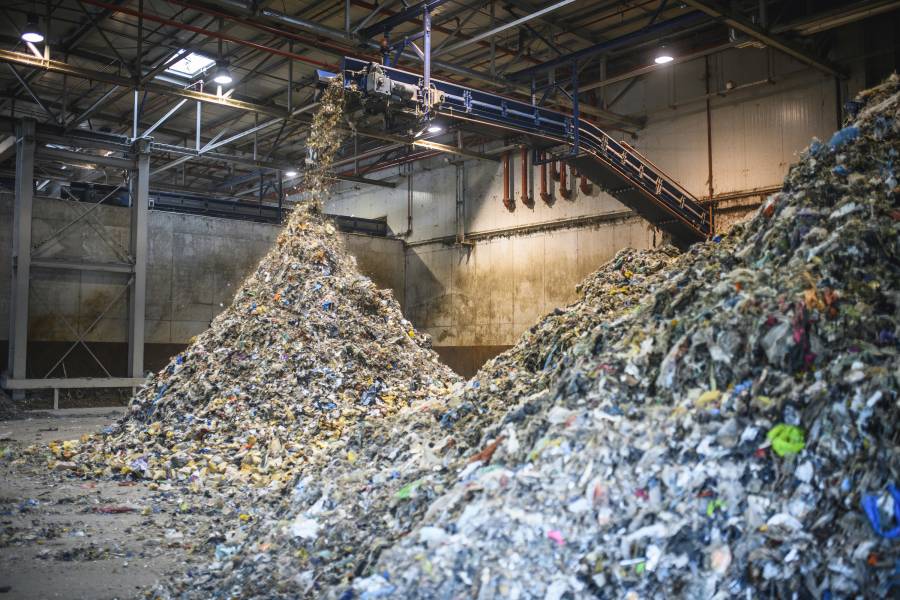Recycling plastic products is a challenge. Not only are a limited number of types of plastic recyclable, but because the recycling process also breaks down polymer chains and degrades the materials' quality, many can only be recycled a few times. As a result, recycled plastics tend to be suitable for use only in low-value products such as single-use grocery bags.
A new type of plastic could change that. Using a four-year, $1.8 million grant from the National Science Foundation, a team led by a Whiting School engineer Thao Vicky Nguyen, a professor in the Department of Mechanical Engineering, is developing an approach that promises to turn difficult-to-recycle plastics into a tougher material suitable for use in high-performance and high-value products. The grant is part of the National Science Foundation's Designing Materials to Revolutionize and Engineer our Future program.
"Our goal is to yield a plastic material that is stronger and tougher than conventional recycled plastics and that can have the same consistent properties as traditional plastics," said Nguyen. "We are hopeful that creating sustainable plastics will reduce the environmental impact of plastics production."
The team's material will be produced by melting and blending two common but difficult-to-recycle plastic polymers: polyethylene and isotactic polypropylene. The researchers are developing a computational, data-driven methodology called Materials Architected by Adaptive Processing, or MAAP, to design the microstructure of the blend and control its processing, ensuring the production of high-valued plastics with consistent strength and toughness properties.
The researchers note that their approach considers the variability of recycled plastic materials. For example, if plastic pellets from a recycling plant have significant impurities, the resulting polymer melt will be thinner. Their method should be able to adjust the temperature and pressure conditions of the processing line to produce a consistent blend.
Such an innovation will give plastics a second life; the recycled plastic created by MAAP will be exceptionally durable, meaning the material can be used in everything from appliances and construction products to personal protective equipment like body armor, adds Nguyen.
The team hopes MAAP will allow other researchers to turn recycled materials into plastic polymer blends with superior properties.
"One of the broader goals for the project is to develop a database to make materials data more accessible for everyone," said Nguyen.
Nguyen, who leads the Mechanics of Soft Adaptive Materials Lab, is the team's principal investigator. Co-principal investigators are Gretar Trygvasson, a professor and head of the Department of Mechanical Engineering; and David Elbert, an associate research scientist in the Hopkins Extreme Materials Institute and the Department of Earth and Planetary Sciences.
Posted in Science+Technology
Tagged mechanical engineering, recycling, research funding, plastic








